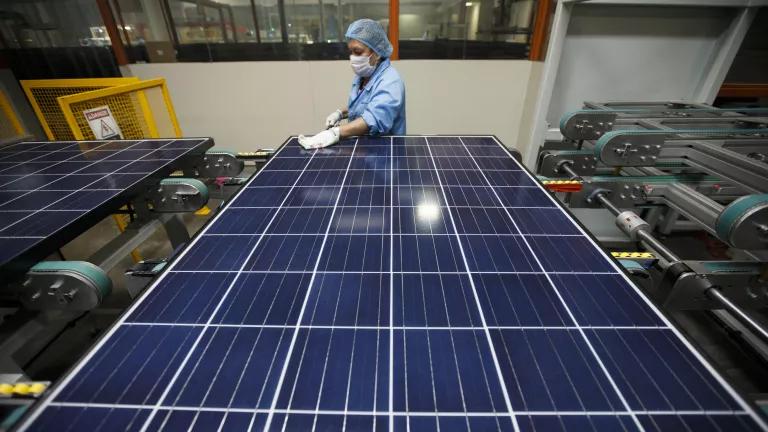Biden's Accelerator Drives Recovery, Resilience and Growth
In the American Jobs Plan, the Biden Administration announced plans to invest $27 billion in a Clean Energy and Sustainability Accelerator. This innovative national green bank has the potential to spark economic recovery and sustainable equitable growth around the country.

In the American Jobs Plan, the Biden Administration announced plans to invest $27 billion in a Clean Energy and Sustainability Accelerator. This innovative national green bank has the potential to spark economic recovery and sustainable (and sustained) equitable growth in communities around the country.
In supporting the Accelerator, the Biden Administration joins Congress.
The Accelerator was included in the U.S. House Energy & Commerce Committee’s CLEAN Future Act. In the Senate, Sen. Chris Van Hollen (D-Md.), Sen. Ed Markey (D-Mass.), Sen. Richard Blumenthal (D-Conn.) and Sen. Brian Schatz (D-Hawaii) introduced the proposal in S. 283 (National Climate Bank Act), with Sen. Debbie Stabenow (D-Mich.) later adding her support. On the House side, Congresswoman Debbie Dingell (D-Mich.) introduced it in H.R. 806 (Clean Energy and Sustainability Accelerator Act) and it has gained Republican support from Rep. Brian Fitzpatrick (R-Pa.) and Rep. Don Young (R-Alaska). Among its key features:
- The Accelerator would be an independent non-profit with an inclusive and nonpartisan governance structure.
- It would dedicate 40 percent of its resources to communities of color, rural communities and those suffering from poverty and environmental degradation.
- It is proposed to have a mandate to aid communities that are dependent on fossil fuels and are looking for ways to diversify and transition their local economies toward a bright future.
A recent independent analysis by Vivid Economics shows why it’s a critical part of the American Jobs Plan, with the Accelerator projected to create millions of jobs in clean energy production, installation and repair, manufacturing, sales, and management, as well as in professional and administrative roles. In terms of sectors, the jobs span renewable power, grid technology, building upgrades, industrial decarbonization, clean transportation and agriculture.
And the higher the capitalization, the more jobs that can be created.
The Accelerator legislation also includes standards to protect or expand high-quality jobs, underscoring the importance of making jobs accessible to all.
The Analysis Group’s independent analysis indicates that the Accelerator would accelerate and strengthen recovery from COVID. And Brattle Group’s independent analysis demonstrates how in the longer term, the investments that it facilitates can speed decarbonization efforts in emerging or challenging parts of the energy sector.
The Accelerator is envisioned to have a decentralized structure, working through and in partnership with existing green banks, national, state and local financial institutions, including community-focused lenders such as community development financial institutions, credit unions and minority depositary institutions. These organizations know their communities best, and so can help to deliver locally tailored solutions for low-carbon, resilient communities. The Accelerator also will have grant funding to build local capacity to better be able to take advantage of opportunities to create new jobs and increase well-being.



